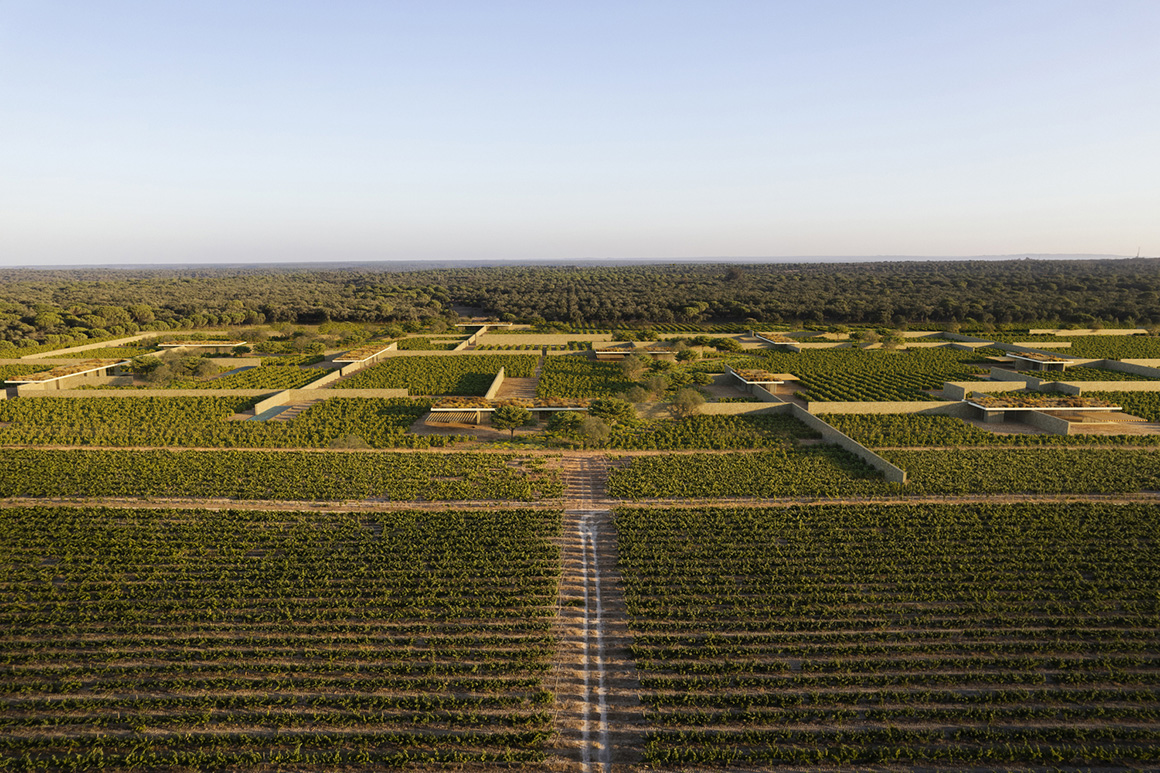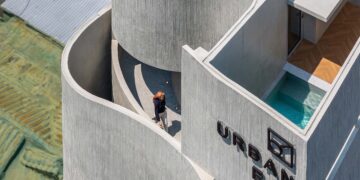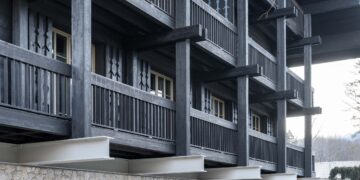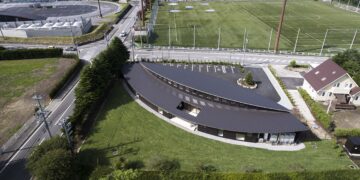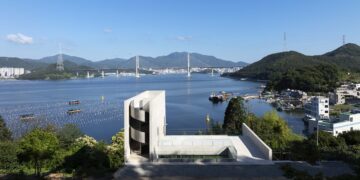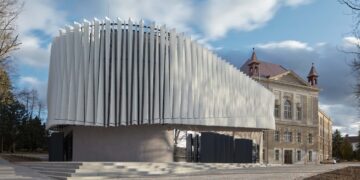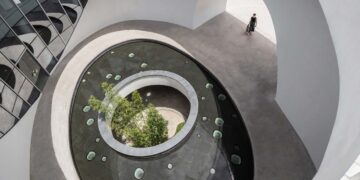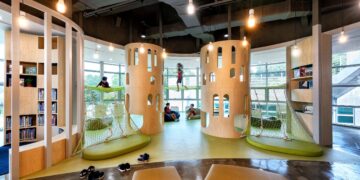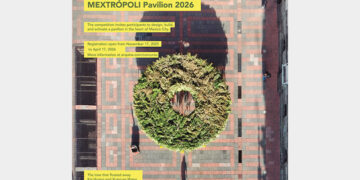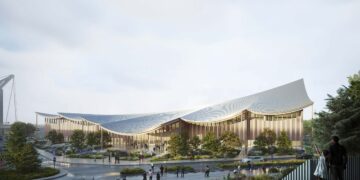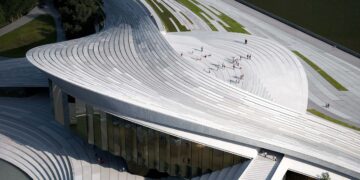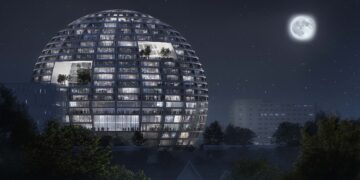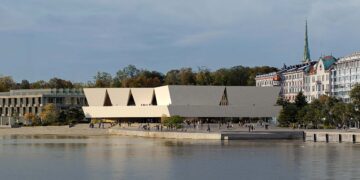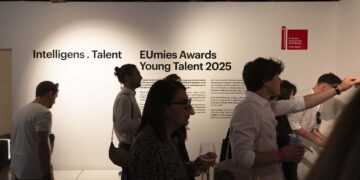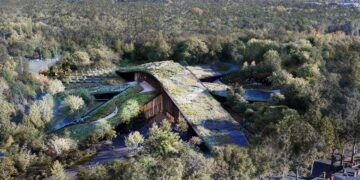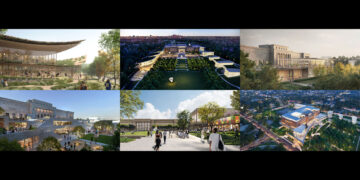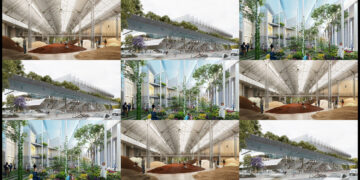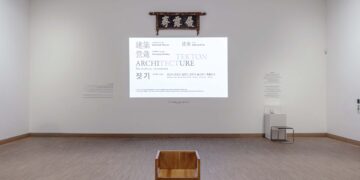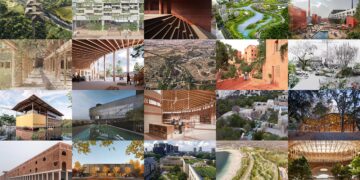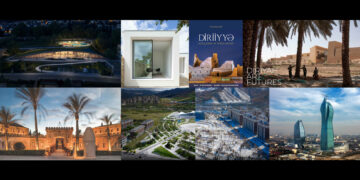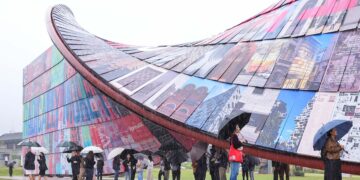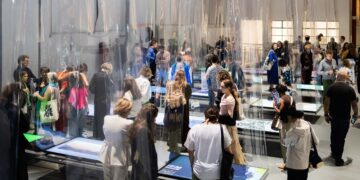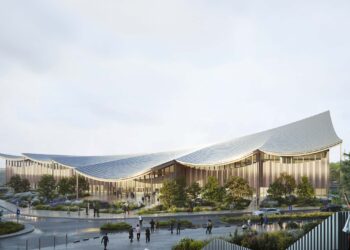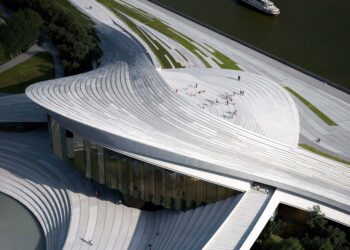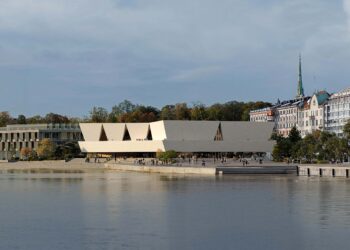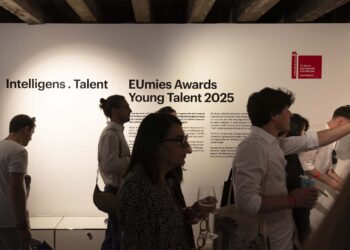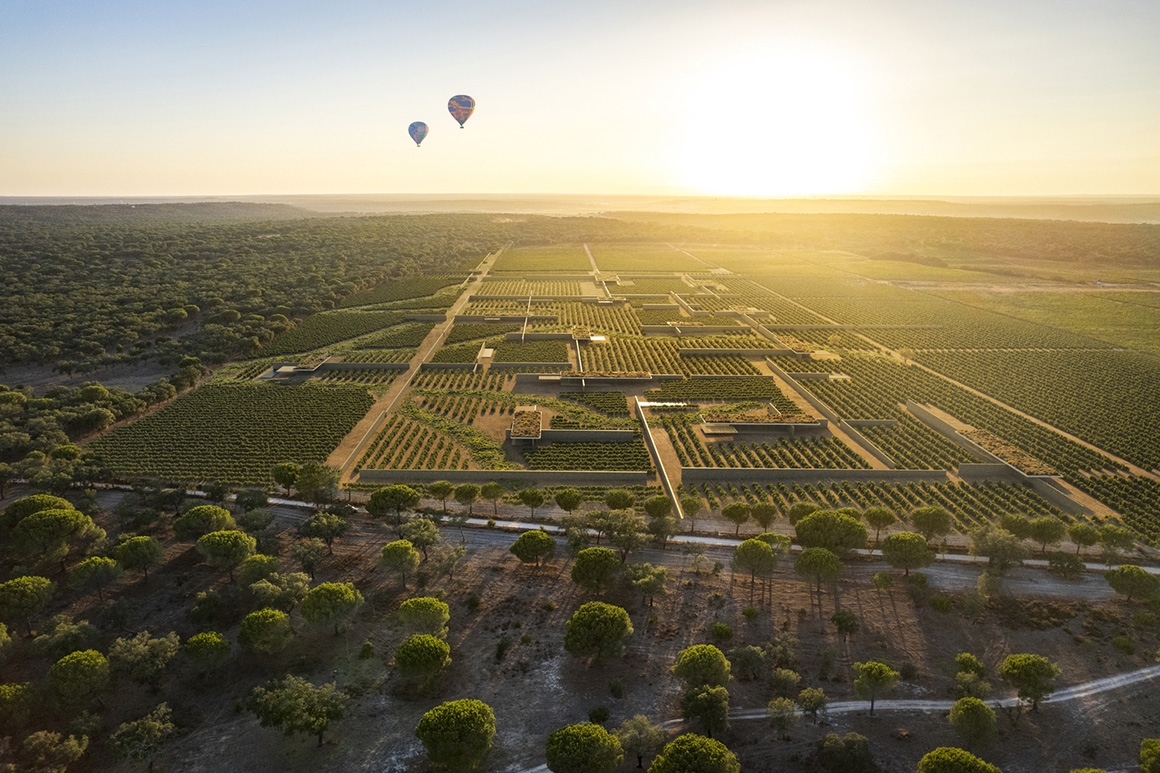
The master plan for the development of the Herdade da Barrosinha has been awarded to the team of OODA and MassLab, which envisions a symbiosis between nature, heritage and the future, based on the principle of ‘Building without Devastating’. Their masterplan consists of nine operational management units that include a mix of tourism, residential, commercial, and leisure functions, and represents a transition to a desirable model of sustainable renewal based on multifunctional and integrated use of space. This direction is driven by a commitment to achieving the UN Sustainable Development Goals.
The project site encompasses an area of 20 million m² above the agricultural zone of Alcácer do Sal, Portugal. The key focus is on balanced intervention in the region’s natural heritage and cultural landscapes to enhance the area’s identity. It serves as a good example of new construction settling harmoniously between human life and environmental respect, showcasing a way for new buildings to integrate into the landscape. To realize this development, an “emotional assessment” was added to the technical analysis phase of the site, considering the memories tied to the land and the sense of community among local residents as landscape elements.
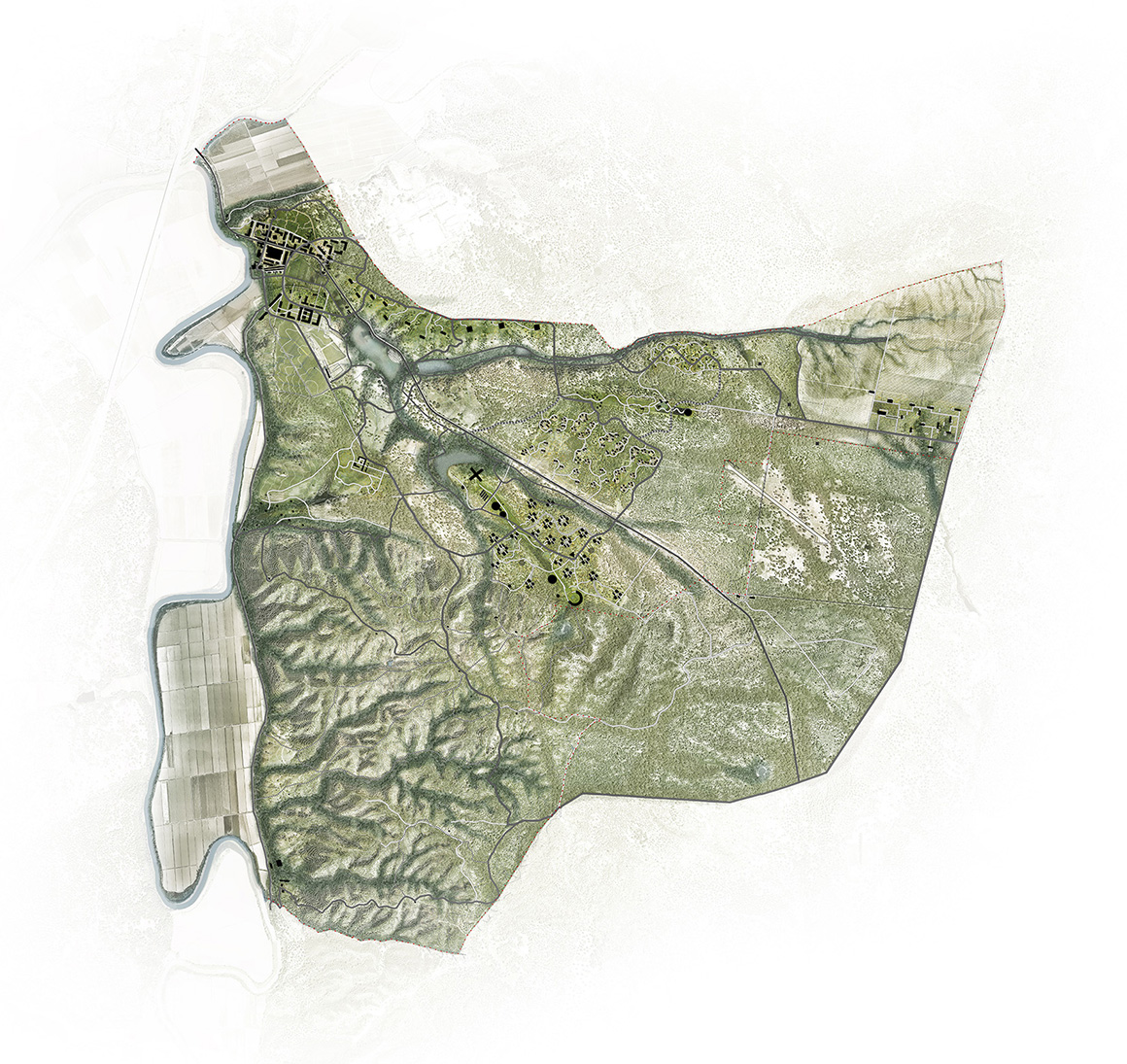
The project site covers an area of 20 million m² above the agricultural area of Alcácer do Sal, Portugal. It is important to develop the identity of the region with a balanced intervention in the natural heritage and cultural landscape of the area. It is a good example of how new architecture can settle harmoniously, finding the balance between human life and the environment. To realize this development, the technical site analysis was supplemented by an ‘emotional assessment’ that considered the memories of the land and the bonds between local residents as landscape elements.
In addition, a network of main and secondary roads was planned as the basic circulation system, but green corridors were added to create shade and foster ecology. This has not been done before in large-scale developments, suggesting that landscape conservation and ecological quality can be fully maintained in urban development projects. Respecting the history, memory, and landscape value of a place, and finding the right balance between architecture and nature, is a path that promises symbiosis and ensures sustainability for a long-term future.
Permanent Housing
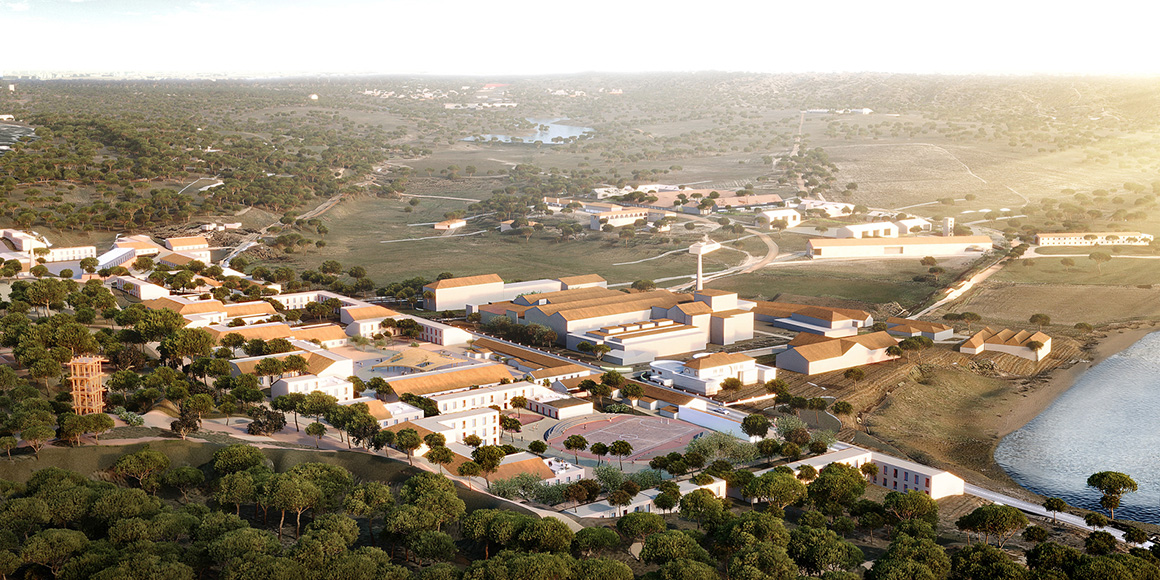
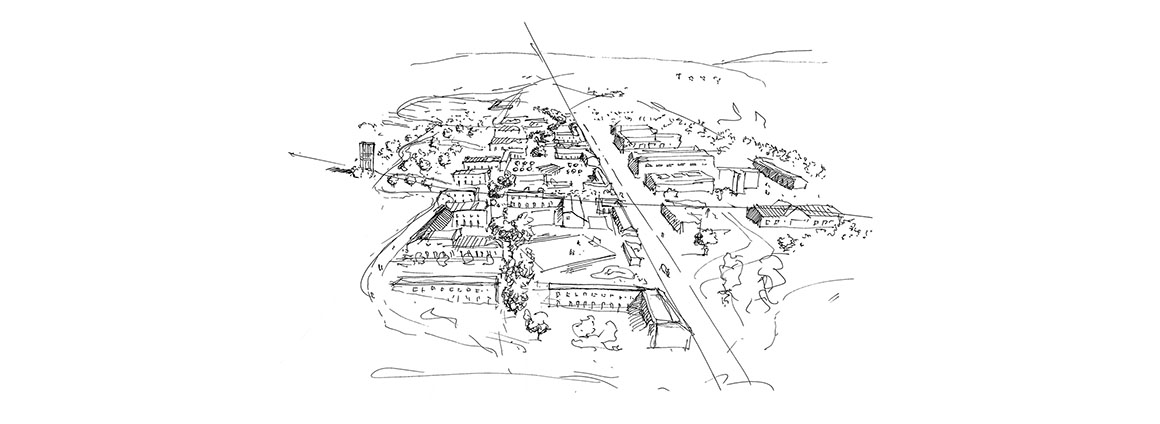

Premium Tourism
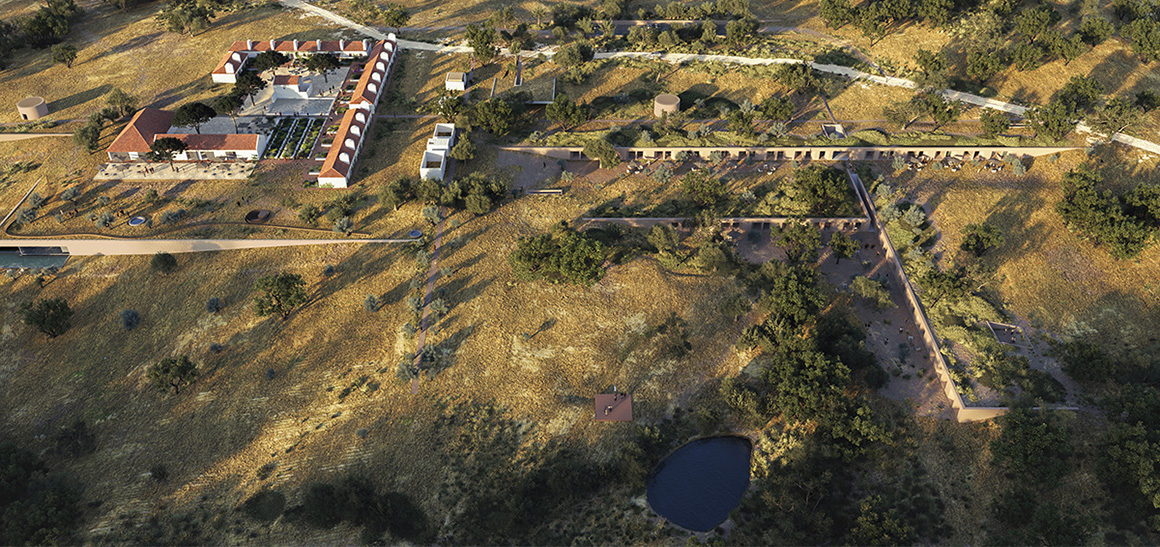

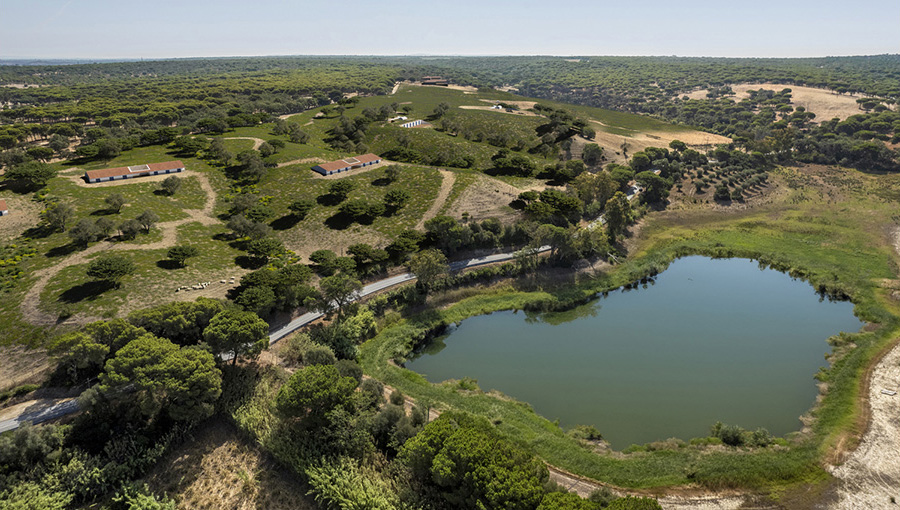
Ecotourism, Glamping and Leisure facilities in nature


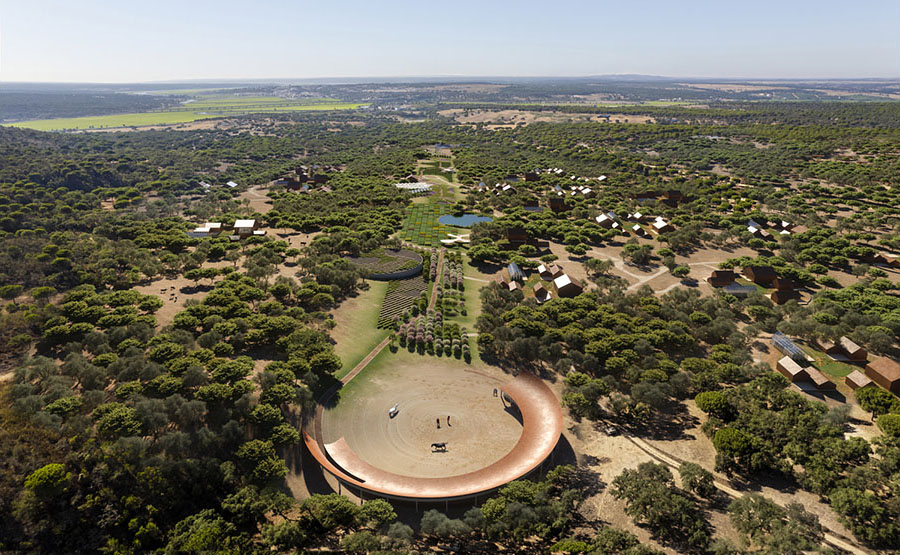
OODA, based in Portugal, is led by Diogo Brito, Rodrigo Vilas-Boas, Francisco Lencastre, João Jesus, and Julião Pinto. Since its founding in 2010, they have undertaken projects of various scales, from individual residences to residential and commercial buildings, hotels, and master plans both domestically and internationally. Representative projects include the mixed-use Tower 15 in Albania and the Hoso student residence in Portugal. They are also collaborating with MVRDV on a large-scale project to construct an eco-city in the former refinery site in Matosinhos, Portugal.
Based in Portugal, OODA is led by Diogo Brito, Rodrigo Vilas-Boas, Francisco Lencastre, João Jesus, and Julião Pint. Since its founding in 2010, the firm has worked on national and international projects ranging in scale from private homes to residential and office buildings, hotels, and master plans. Representative projects include Tower 15, a mixed-use building in Albania, Hoso, a student housing in Portugal, and a large-scale project with MVRDV to build an eco-city in a former oil refinery complex in Matosinhos, Portugal.
